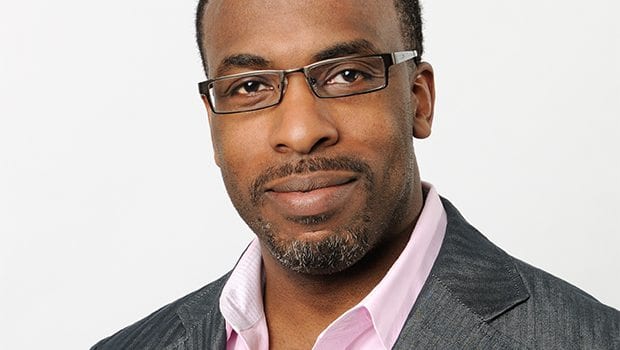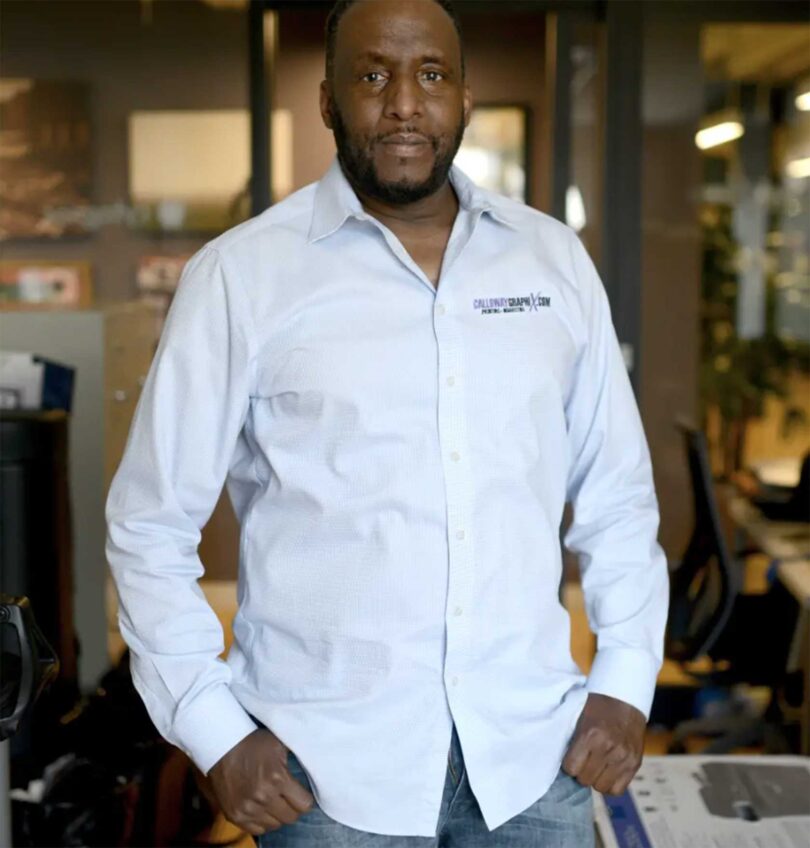Corey Thomas took a slow, steady path to the top of the corporate ladder

Corey Thomas, CEO of Rapid 7, always knew he wanted to run a company someday, but early on his was advised to seek experience and learn the different aspects of running a business first.
He credits this slow and steady approach with fueling his current successful stint atop a growing high-tech business.
Thomas joined Boston-based Rapid 7 in 2008 as executive vice president of sales, marketing and products. In 2011, he rose to president and chief operating officer and one year later he was named president and chief executive officer.
He sits atop a rising star in the cybersecurity market.
Rapid 7 provides security analytics software and services that help companies protect their technology, identities and secure information. On one side of the industry are companies that provide active protection that block attacks as they happen. Rapid 7 works on the other important aspect of the industry. The company manages security and technology all across a client’s technology infrastructure, working to stop attacks before they happen by determining risks and vulnerability and reducing them, as well as increasing the speed in which businesses detect attacks and fix them.
Rapid 7 currently has 3,000 customers in 78 countries and 500 employees in 13 offices around the world. Since the start of this year, the company has added 500 customers, including high profile clients such as chip-making giant Cirrus Logic, Harvard Business School and TD Banknorth. It added over 160 employees in 2014 and opened offices in Northern Ireland, Korea and Japan.
According to Thomas, the increased demand for security services, such as those Rapid 7 provides, has led to the company’s growth and he believes will continue to fuel its expansion in the next decade.
“We are in an industry that is growing in terms of focus and attention and also growing in terms of the dollars. There is a real opportunity for leaders in the security industry,” Thomas said.
“One of the unique things we really set up at an early stage is this [exhaustive] focus on providing value for our customers,” he added. “We have a heavy focus on what the attackers are doing, what the tools they are using and what kind of tools the customers are using.”
Like many privately held companies, Rapid 7 does not release revenue numbers, but the company claims to have increased its revenue every quarter for the last five years and has landed on many fastest-growing company lists.
A native of Georgia, Thomas graduated from Vanderbilt University in 1998 with a degree in computer science and electrical engineering. He first came to Boston in 2000 to attend Harvard Business School.
Following a mentor’s advice, he immersed himself in the business world, working in different positions as his career developed from marketing to business strategy to product development. His efforts brought him across the U.S. and abroad to England and Switzerland with stops at Deloitte Consulting, Microsoft and Parallels before joining Rapid 7.
Thomas’ focus through the early parts of his career was on prepping himself for the opportunity to run a company like Rapid 7, but he has risen to CEO at a pace faster than many can match.
Those around him are not surprised. Ben Nye, Rapid 7 board member and a managing director at Bain Capital Ventures, which has invested in the company, has called Thomas a “born leader” and suggested that promoting him to CEO was an easy choice as he inspires others to work for him.
Thomas said the biggest thing he has learned about being a leader since taking over as head of Rapid 7 is the importance of being transparent and candid.
“It is not the strategy that is the most important thing in the world — it is the culture and how you engage with the strategy and the execution,” he said.
His biggest advice to aspiring young professionals is to pursue strong mentors and experiences.
“Seek out experiences in which you can fail,” Thomas said. “Not many people seek out challenges where they can fail, but failure leads to good leaders.”
Now in a position to mentor others, Thomas has made efforts to do so by becoming involved with The Partnership, a Boston organization which helps professionals of color find high level jobs and also provides mentorship opportunities. He also supports efforts to involve students of color in more STEM education.
According to Thomas, one of the biggest challenge young professionals of color face is that there are just not enough mentors available.
“The best way to have diverse people succeed at the executive level is to make sure they are confident, and the way to make sure they are confident is to ensure they have access to mentoring and support,” Thomas said. “Mentorship is absolutely key to helping people get the knowledge they need to be successful.”






